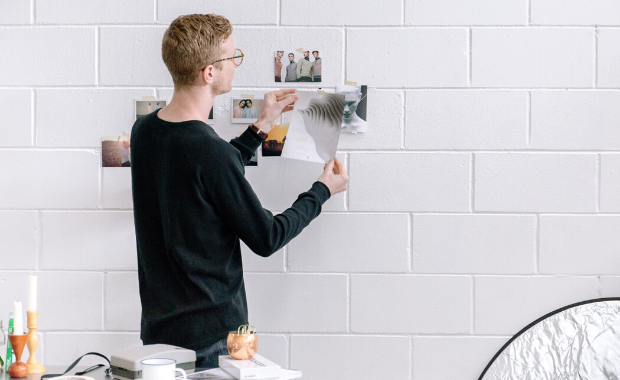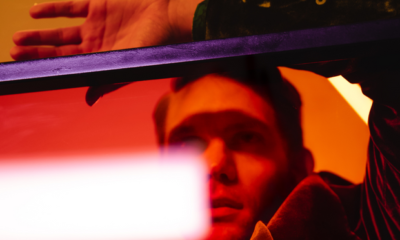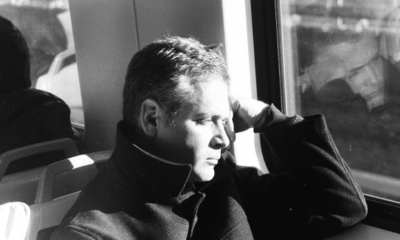Success Advice
3 Questions That Will Immediately Ramp Up Your Creative Flow

If you’d like to learn how to ramp up your creative flow so you can produce your best work, sign up for the free 90-Day Master Class hosted by the founder of Addicted2Success.com, Joel Brown.
While creativity has long been co-opted by the arts, anyone that’s been in business, built a new product, or pitched a new sales deck knows that creative thinking and execution aren’t only for the painters and poets but for everyone that wants to or–as so often the case as an entrepreneur–needs to think and work differently. At the heart of creative work is not talent, inspiration, or the hope of an epiphany; it’s flow.
Flow is that state of performance in which we do our best work. Free from distractions, ultra-focused and challenged, our brains engage our work at its deepest level; ideas come, time flies, and the world around us seems to disappear. This is the zone to which athletes aspire, and the Groove for which artists hunger.
Flow is a state of creativity and productivity that exists in the liminal space between work and play and if you want to think better and produce stronger results in any context, it is to Flow that you must look at.
Flow is not a hack or a trick. You can’t just turn it on or off, but you can create it, anytime and anyplace. In a 1996 article in Wired Magazine (Go With the Flow), writer John Geirland quotes Hungarian-American psychologist Mihaly Csikszentmihalyi as describing Flow as “being completely involved in an activity for its own sake. The ego falls away. Time flies. Every action, movement, and thought follows inevitably from the previous one, like playing jazz. Your whole being is involved, and you’re using your skills to the utmost.” He should know; he discovered the idea.
A prolific and creative man himself, Csikszentmihalyi was the man who first identified this phenomenon. His 1990 book, Flow: The Psychology of Optimal Experience, introduced and explained it to the world, and it deserves better than a short article boiling it down to essentials. But there are conditions in which Flow occurs, and if you can get there intentionally, you will get to that state of optimal performance faster.
“Be still like a mountain and flow like a great river.” – Lao Tzu
Here are three questions I ask myself to get to Flow:
1. Am I Focused?
Flow depends on focus and that’s an increasingly rare commodity. Our attention is a resource and among driven people and high performers, it’s often put into overdraft by the belief that we can multitask. Of course we can multitask, but study after study shows we don’t do it well and if you want to get to Flow, it’s not about doing as much as you can while paying as little attention as possible. There’s next to no return on investment for paying that kind of attention.
Flow is about peak performance and doing your best work, not a hack driven by a desire to accomplish the mediocre. If you want to do your best work, the work that will distinguish you from others, it must be given your undivided attention. That means turning off the distractions completely, making yourself unavailable, and doing one thing only for longer blocks of time.
Flow requires attention and time, and won’t be placated by half-measures. The emails and texts and social media can wait. The upside is that those can also benefit from Flow. Save them for blocks of time in which you can give them your full attention and you’ll make fewer mistakes and do more than just distractedly mail them in.
2. Am I Challenged?
One of the more interesting ideas is that Flow occurs most reliably when you are operating at the vector where skill and challenge meet. Our best work is not done when it’s an easy match for our skills; that rarely holds our interest long enough for Flow to occur.
Our creativity needs challenge, it needs something to push against and a problem to solve. But one must not overpower the other. If the challenge, relative to our ability to pull it off, is too great, we start freaking out and we’ll lose the focus that’s so important and burn through our attention resources long before we get into the zone or groove. If the challenge is insufficient, we’ll get bored and then too we lose focus and start looking for something that feels more significant.
Asking ourselves if we are sufficiently challenged is a good way to re-calibrate. If the answer is no, find a way to add challenge to the project. How can you make it even better, take it deeper, or accomplish it in half the time? When challenged, we focus and bring out the best of what we know, and what we can accomplish. Want to bring out the big guns? Pick a bigger fight.
“You’re thinking too much, just let it flow.” – E. Paluszak
3. Am I Nervous?
In The War of Art, a book about fighting the resistance that is always present in any creative work, author Steven Pressfield talks about the presence of fear in the creative process, reframing it from a negative to a positive: “Fear is good. Like self-doubt, fear is an indicator. Fear tells us what we have to do. Remember our rule of thumb: The more scared we are of a work or calling, the more sure we can be that we have to do it.”
In other words, fear is a compass and anyone doing work that matters should be suspicious if there’s no fear and nothing at stake. Years ago I was a comedian, performing routinely for audiences of 1000 to 2500 people. In those 12 years I learned to identify the fear as a reliable indicator of the possibility of Flow. My best shows were not those in which I felt perfectly comfortable but those in which I had the most to lose. The nervousness focused my thoughts and energies and put an edge on my performance that wasn’t there when I was just going through the motions. I thought faster, I improvised better, I put more in and expected to get more out.
When I find myself outside the riptide of Flow I ask myself if I’ve really got skin in the game, if there’s a way I can increase the risk, be more vulnerable, or put a little more on the line. It’s not for the sake of risk, but to draw out the best of me that otherwise need not show up when there’s nothing to lose. If there’s nothing to lose there’s also nothing to gain.
You don’t need to study Flow or know how to pronounce the name of the man who brought such clarity to the idea. But you do need that state of optimal performance if you’re going to do your best work, the work that sets you apart from those who think they can get along just fine without it, distracted, unchallenged, and without the nerves that come from taking on something a little bigger than themselves.
Flow brings focus and draws out the best of our skills and pulls us toward innovation, unexpected results to bigger problems, and the kind of results that make our work stand out from a crowd too willing to settle for half-measures and the good enough.
Have you ever been in flow? If so, share how it felt with us below!
Business
If Your Business Internet Keeps Letting You Down, Read This
From smoother operations to better security, dedicated internet access is quietly powering today’s high-performing businesses.

Today, a dependable internet service is the bedrock for uninterrupted business operations. Many organizations rely on stable online connections for communication, data transfer, and customer interaction. (more…)
Did You Know
How Skilled Migrants Are Building Successful Careers After Moving Countries
Behind every successful skilled migrant career is a mix of resilience, strategy, and navigating systems built for locals.

Moving to a new country for work is exciting, but it can also be unnerving. Skilled migrants leave behind familiar systems, networks, and support to pursue better job opportunities and a better future for their families. (more…)
Life
10 Research-Backed Steps to Create Real Change This New Year
This New Year could finally be the one where you break old patterns and create real, lasting change.

Every New Year, we make plans and set goals, but often repeat old patterns. (more…)
Change Your Mindset
The Silent Skill That Makes People Respect You Instantly
What truly earns respect and why most people go about it the wrong way

Everybody craves respect but not everyone earns it. Some people believe that a title, years of experience, or a position of authority automatically entitles them to respect. (more…)
-

 Health & Fitness2 weeks ago
Health & Fitness2 weeks agoWhat Minimalism Actually Means for Your Wellness Choices
-

 News1 week ago
News1 week agoBrandon Willington Builds 7-Figure Business by Ignoring Almost Everything
-

 Did You Know2 weeks ago
Did You Know2 weeks agoWhy Most Online Courses Fail and How to Fix Them
-

 Business2 weeks ago
Business2 weeks agoIf Your Business Internet Keeps Letting You Down, Read This
-

 Business21 hours ago
Business21 hours agoEntrepreneur’s Guide to Pay Stubs: Why Freelancers and Small Business Owners Need a Smart Generator
























